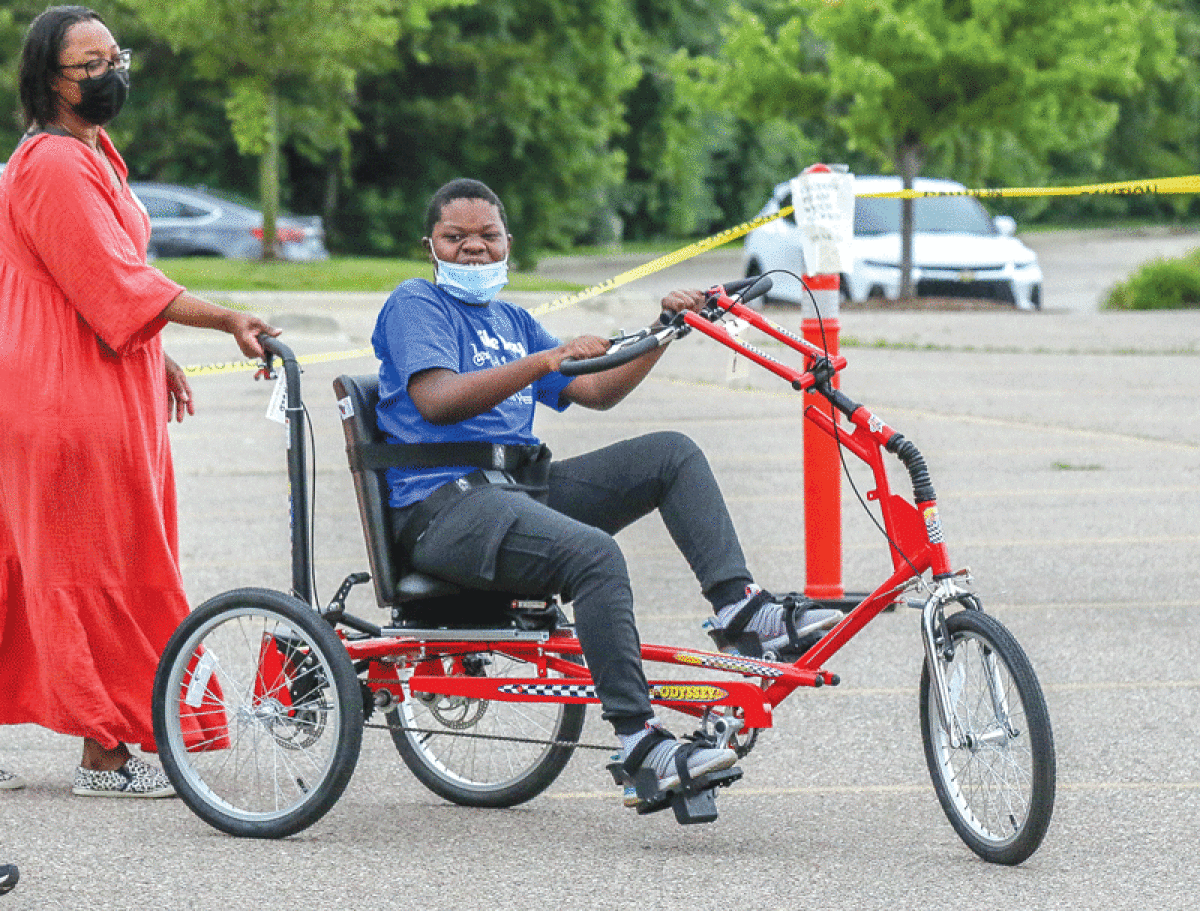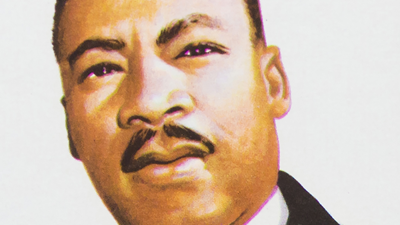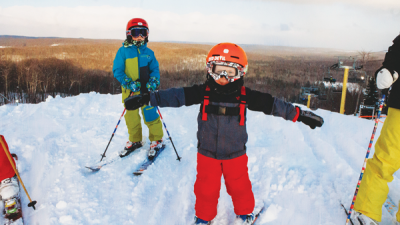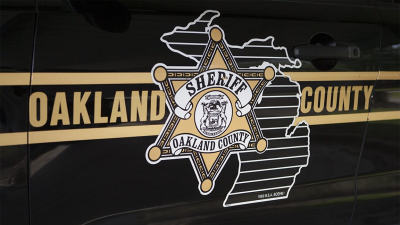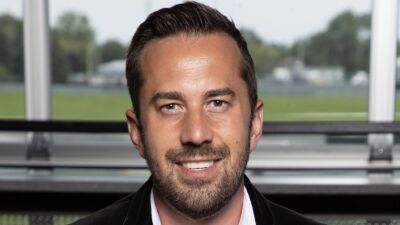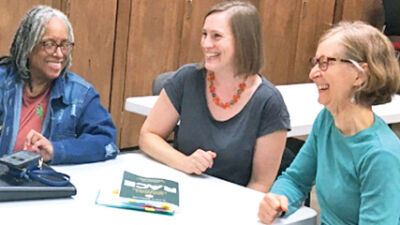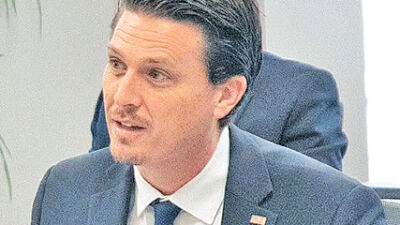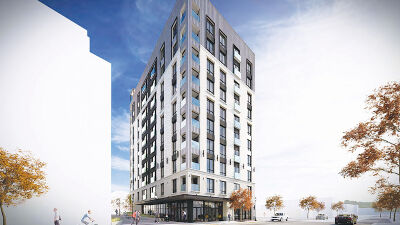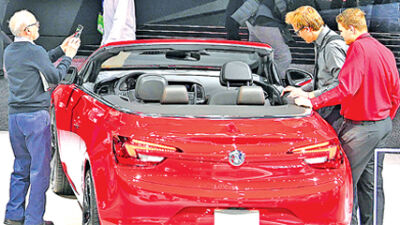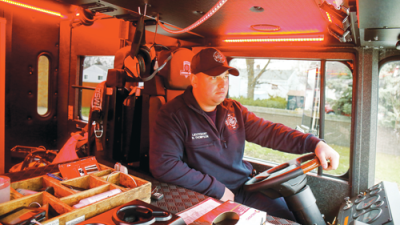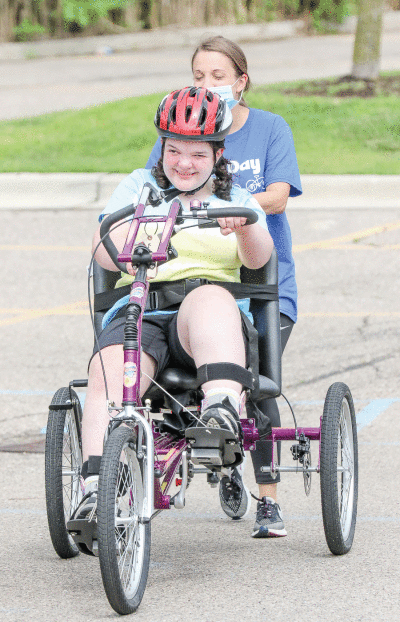
Kathleen Warden, a 19-year-old from Berkley, speeds off on her new bike while Beaumont speech pathologist Katie Laperriere tries to keep up. This is the third bike Warden has received through Bike Day, having received the first when she was 4-years-old.
Photo by Patricia O’Blenes
METRO DETROIT — Each year, the Children’s Miracle Network nonprofit coordinates with Beaumont Children’s Hospital to give out some very special bicycles to children who otherwise might have never gotten the opportunity to ride.
Called “Bike Day,” the two organizations work together to purchase or refurbish bicycles so that they can meet the needs of and be rideable by children with special needs. The kids receive the bikes for free.
“This year, about 100 kids are receiving an adaptive bicycle, which meets their physical needs so they can ride a bike just like all of the other kids,” explained Charlotte Alex, the director of the Children’s Miracle Network at the Beaumont Health Foundation. “A lot of times, kids who have special physical needs aren’t able to ride a typical bike you would buy at a store, so these adaptive bicycles are very expensive. Some can run between $2,000 and $5,000 each. What the Children’s Miracle Network does is we raise the funds to pay for all of these bikes, so this is about a $200,000 day.”
This year’s Bike Day took place on July 16. The specially designed bikes can help children to ride as they confront a number of conditions that often keep them from being able to use most bicycles.
“One common condition is cerebral palsy, which is an acquired condition where they most commonly have difficulties with moving parts of their bodies due to … their muscles getting very tight and have limited range of motion or difficulty moving,” said Dr. Stephen Fung, a doctor with Beaumont Health specializing in physical medicine and rehabilitation. “Another would be muscular dystrophy. This is a condition where they have a problem with their muscle proteins. They can easily overexert themselves. Ensuring that they get a full range of motion and can find ways to exercise can help their treatment and quality of life.”
Livonia resident Elise Klosowski is the mother of 7-year-old Tamsin, the recipient of one of the bikes.
“Tamsin is receiving a recumbent-style bike where she can sit back and be closer to the ground,” said Klosowski. “She has tuberous sclerosis complex, which causes delays and challenges with coordination. I can help her steer, since awareness cannot be there. It gives her freedom and lets her join in activities her big brothers get to do. She’s excited. It’s safer for her since she can have seizures and might have trouble getting on the bike, and it’s easier for her to pedal.”
Klosowski said that Tamsin getting to ride a bike for the first time can make a world of difference.
“It makes a huge difference,” she said. “She hasn’t been able to go around the block or ride up to the park with her brothers. She sees them and tries to get on their huge bikes, so this, I think, will give her a huge sense of normalcy and something fun that every kid should be able to do.”
Hal Honeyman is the owner of the Bike Rack from St. Charles, Illinois. He and his company are responsible for modifying many of the bicycles given out on Bike Day.
“Our rule is that everybody can ride; it’s all about finding the right solution,” said Honeyman. “We’re a vendor and work with about 10 different vendors, and we do a lot of mixing and matching as well as some fabrication. … There’s a huge array of modifications. One you can see here today is both hand and foot powered. We allow pedals that allow for better range of motion. Some have special seating to support a child that needs a little more front or back support. There are special pedals for their feet, which can help make up for motor deficits.”
Honeyman adapted his family’s bicycle business to modify bikes when his son wasn’t able to ride due to a medical condition.
“I have a son named Jacob who is about 20 years old now,” he said. “Jacob has cerebral palsy. He’s also a triplet, so when his sisters started riding at age 3, he wanted to get on a bike, too. We’ve had a bike shop in our family for many years, and we ended up researching what we could do. Through some trial and error and working with his therapist, we found out how we could get him to ride successfully. With his condition, he can’t walk but he can ride a bike.”
About 97% of the children who receive the bikes are treated through Beaumont. More than 200,000 kids a year are treated at Beaumont Children’s Hospital, and those in the hospital’s programs are how the Children’s Miracle Network identifies most of the children who will receive the bikes on Bike Day. They can then talk to their doctor or physical therapists who can get them on the list for Bike Day.
“Back in May, these kids were fitted for these adaptive bicycles,” said Alex. “Everything they need in a bicycle was determined and they were measured, and then we have two companies that make the bicycles, and today is pickup day. … We give out about 100 a year; today, about 50 kids are picking up their bicycles, because sometimes we can refit older bicycles, which we can give out on the fitting day.”
“The bikes are all very different,” added Honeyman. “One we brought today is a one-of-a-kind custom creation that runs about $6,000. Another is essentially an off-the-rack tricycle, but we just added some adaptations, and that’s about $600.”
Alex said that ensuring they can give the families the bicycles for free is a huge factor, since the cost is what usually prevents families from buying their own adaptive bicycles.
“Parents of a child with special needs often have their financial resources depleted by medical costs,” she said. “A child with special needs often has needs that insurance doesn’t cover, so something like an adaptive bicycle can be out of reach for these families. This provides these children the opportunity to get to do something most kids can do without even thinking about it. It helps them not only with their physical rehabilitation for their legs and arms and core, but it also helps them mentally and emotionally.”
The families can also get new bicycles through the program as the children grow or their needs change.
“We want to let everybody know that as these kids grow and their needs change, they are encouraged to bring their bike back so we can refurbish it and remake it for another child,” said Alex. “After they donate it, they can then be fitted for a new bicycle that fits their growth or new situation.”
Those who see the difference a bicycle can make in the life of a child who has never been able to ride one before can attest to how important such a thing can be.
“This is an amazing organization and an amazing program,” said Klosowski. “All kids are kids and need to have fun. Even if you do end up confronting a condition like this you don’t expect, there are a lot of services out there who can help make their lives better.”
“This gives these kids freedom,” added Honeyman. “The whole ability to do something on their own is enormous. Some of these kids are lifted from a bed to a chair to a couch and are fully dependent. When they can do something on their own, there’s a tremendous amount of freedom. All you have to do is look at their face to see that joy.”
 Publication select ▼
Publication select ▼